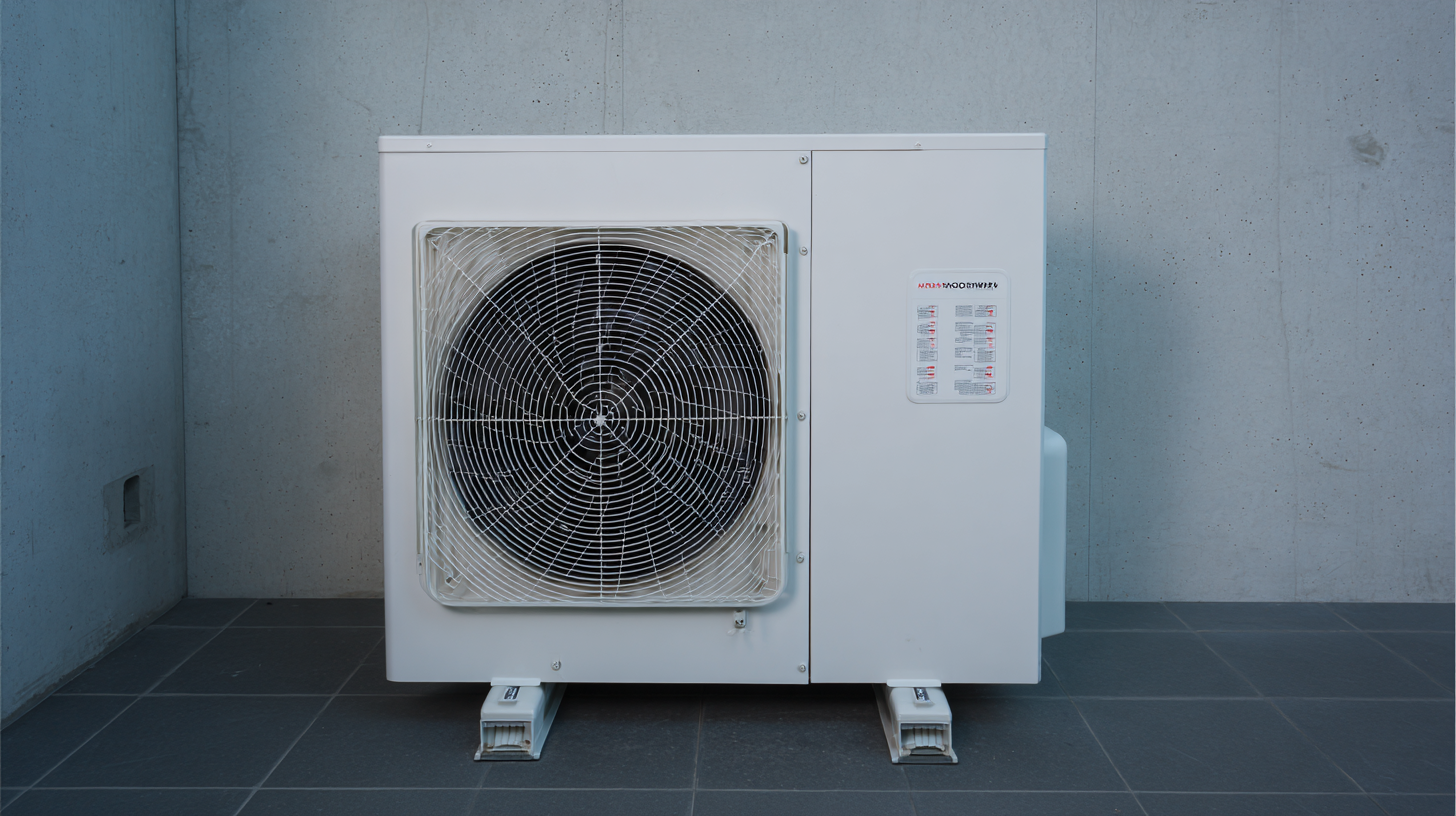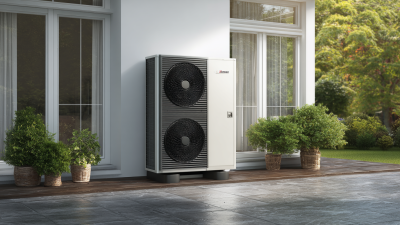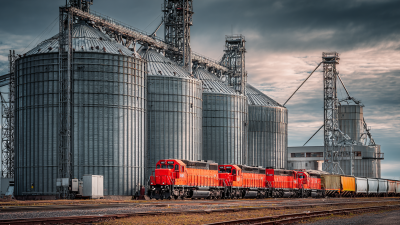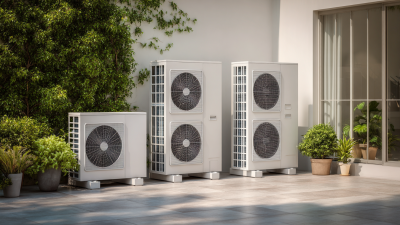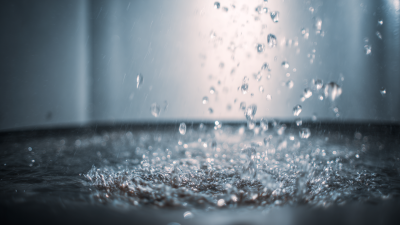Leave Your Message
In the ever-evolving landscape of home heating solutions, the Monoblock Heat Pump stands out as a revolutionary technology that promises energy efficiency and environmental sustainability. According to Dr. Emily Sanders, a renowned expert in renewable energy systems, "The Monoblock Heat Pump not only reduces energy consumption but also offers homeowners a practical way to embrace green technology." This innovative system integrates all essential components into a single outdoor unit, simplifying installation and maintenance while maximizing performance.
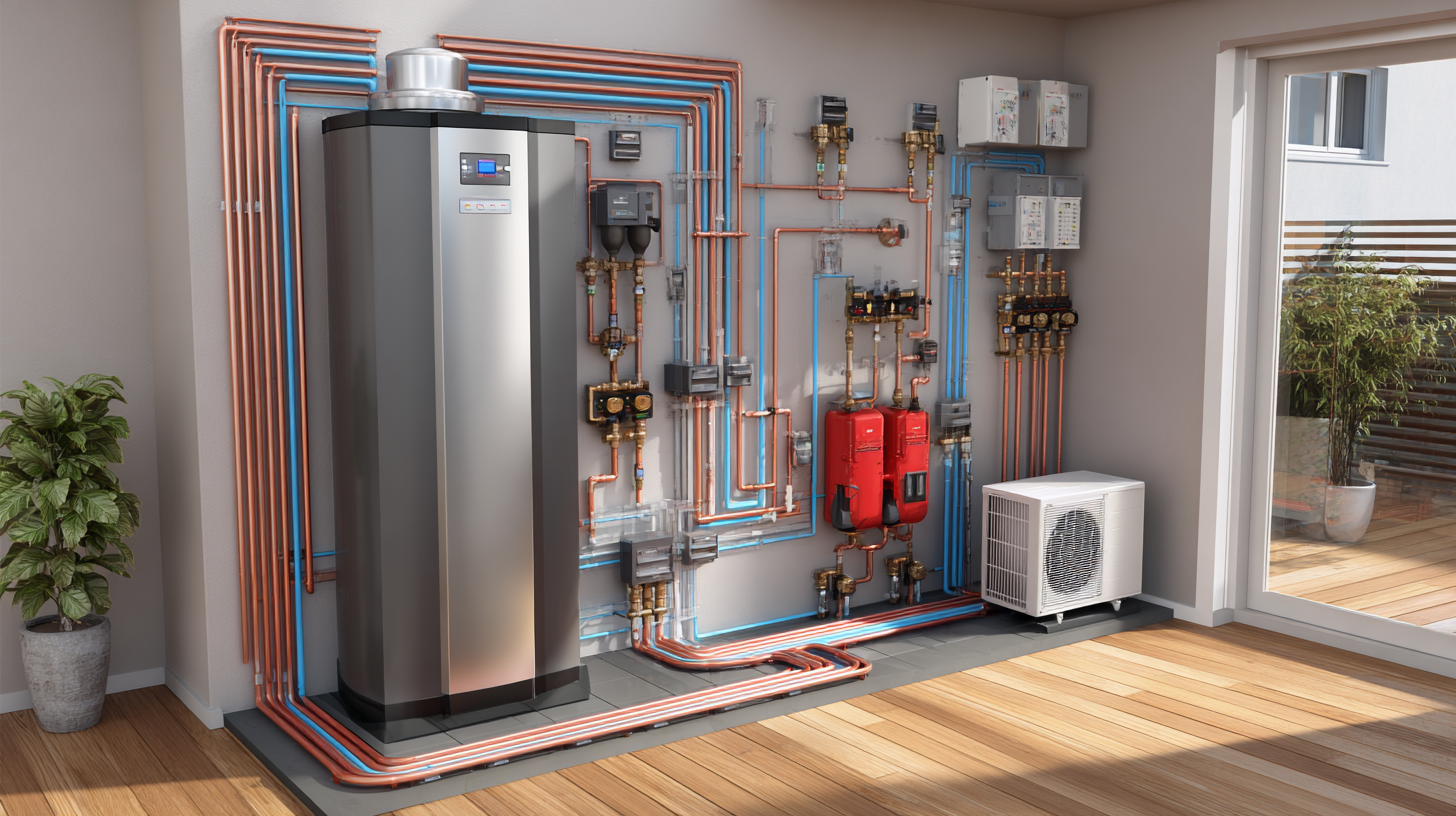
As the demand for sustainable heating solutions grows, the Monoblock Heat Pump is gaining popularity among homeowners seeking to reduce their carbon footprint. With its ability to extract heat from the outside air, even in low temperatures, this system is proving to be an effective alternative to traditional heating methods. Dr. Sanders emphasizes that "the efficiency and versatility of Monoblock Heat Pumps make them a game changer in the way we approach home heating, paving the way for a more sustainable future."
The introduction of Monoblock Heat Pumps is not just a trend; it signifies a shift towards smarter energy use in residential heating. As we delve deeper into the benefits and workings of this system, it becomes clear how it transforms the landscape of home heating, making it an appealing choice for environmentally-conscious homeowners.
Monoblock heat pumps are an innovative solution for home heating, combining efficiency with ease of installation. Unlike traditional split systems, which require indoor and outdoor components, monoblock units house all essential elements in a single outdoor unit. This design simplifies the setup process and reduces the risk of refrigerant leaks. According to a report by the International Energy Agency (IEA), heat pumps can reduce energy consumption for heating by up to 50% compared to electric resistive heating.
These systems extract heat from the outside air, even at low temperatures, and transfer it indoors. This is achieved through a refrigeration cycle that utilizes a refrigerant to absorb and release heat. The versatility of monoblock heat pumps allows them to not only provide heating but also offer cooling during warmer months, making them a year-round climate control solution. In fact, a study from the European Heat Pump Association (EHPA) reveals that the market for heat pumps is projected to grow by 15% annually, highlighting their increasing relevance in energy-efficient home solutions.
Tips: When considering a monoblock heat pump, assess the insulation and energy efficiency of your home to maximize its effectiveness. Additionally, check local subsidies or incentives for heat pump installation, as many regions offer financial support to promote sustainable heating solutions. Regular maintenance is key to ensuring optimal performance; schedule annual check-ups to keep your system running efficiently.
This chart illustrates the heating efficiency of monoblock heat pumps at different outdoor temperatures, showcasing their performance in various conditions.
Monoblock heat pumps are increasingly becoming a popular choice for efficient home heating systems, primarily due to their unique design and installation benefits. Unlike split heat pump systems, a monoblock unit features all its components housed within a single unit, typically installed outside the home. This design simplifies installation, as it minimizes the need for refrigerant lines and complex indoor setups. According to a report by the International Energy Agency (IEA), heat pumps can reduce energy consumption for heating by up to 50% compared to traditional heating methods, making them an environmentally friendly choice.
One of the key advantages of monoblock heat pumps is their high efficiency and lower carbon footprint. The European Heat Pump Association (EHPA) states that the average efficiency (COP) of modern heat pumps can reach 4.0 to 5.0, meaning they can generate four to five times more energy in heating than the electricity they consume. Furthermore, when powered by renewable energy sources, the overall carbon emissions can decrease significantly. This is crucial as homeowners are increasingly seeking sustainable solutions to combat climate change while also reducing their energy bills. Monoblock heat pumps represent a forward-thinking option that aligns with both economic and ecological goals in home heating.
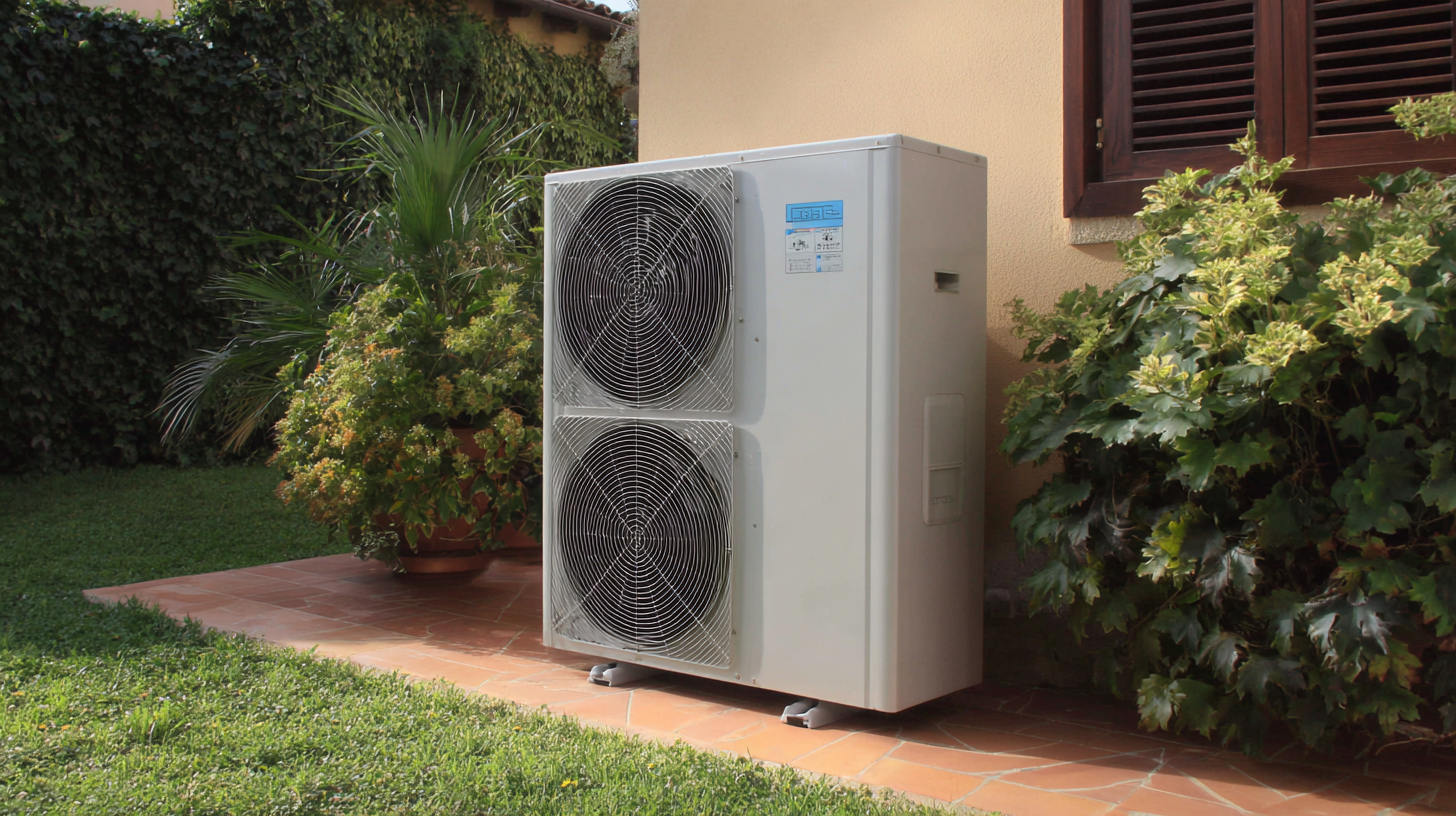 Monoblock heat pumps are gaining recognition for their ability to significantly enhance energy efficiency in home heating systems. Unlike traditional heating solutions, which often require complex installations with multiple components, a monoblock system is a single unit that is easier to install and maintain. These units draw heat from the outside air and transfer it indoors, utilizing advanced technology to maximize heat extraction even in colder temperatures. This streamlined design means lower energy consumption, as the system effectively harnesses renewable energy sources, thereby reducing reliance on fossil fuels.
Monoblock heat pumps are gaining recognition for their ability to significantly enhance energy efficiency in home heating systems. Unlike traditional heating solutions, which often require complex installations with multiple components, a monoblock system is a single unit that is easier to install and maintain. These units draw heat from the outside air and transfer it indoors, utilizing advanced technology to maximize heat extraction even in colder temperatures. This streamlined design means lower energy consumption, as the system effectively harnesses renewable energy sources, thereby reducing reliance on fossil fuels.
Moreover, monoblock heat pumps contribute to reduced operational costs for homeowners. By utilizing energy from the environment, these systems offer a cost-effective alternative to conventional heating methods, which can be costly and inefficient. Over time, the savings on energy bills can be significant, making monoblock heat pumps an attractive option for those looking to minimize their environmental impact while cutting down on heating expenses. The combination of easy installation, high efficiency, and cost-effectiveness positions monoblock heat pumps as a smart investment for modern homes aiming for sustainability.
When considering the installation of a monoblock heat pump in residential settings, various factors must be taken into account to ensure optimal performance and efficiency. First and foremost, the location of the unit plays a crucial role. Monoblock heat pumps are typically installed outdoors, so choosing a spot with sufficient airflow and minimal obstructions is essential. Proximity to the home is also important; the plumbing and electrical connections should be easy to manage while ensuring the design integrates well with the property’s aesthetic.
Another critical consideration is insulation and existing heating systems. Homeowners should assess their property’s insulation quality, as a well-insulated home can significantly enhance the heat pump's efficiency. Additionally, if there’s an existing heating system, it’s vital to determine whether the monoblock heat pump will operate as a primary or supplementary source of heat. Compatibility with current systems can influence both installation complexity and overall energy savings. Engaging with professional installers can help navigate these considerations, ensuring a seamless and effective transition to this modern heating solution.
To ensure the longevity of your monoblock heat pump, regular maintenance is critical. Start by cleaning or replacing the air filters every few months. Clogged filters can reduce efficiency and strain the system, leading to potential breakdowns. Keeping the outdoor unit free of debris, such as leaves and dirt, is also essential. Clear space around the unit to allow for proper airflow, which helps maintain optimal performance.
In addition to cleaning, it's advisable to schedule professional inspections at least once a year. A trained technician can check refrigerant levels, inspect electrical components, and identify any potential issues before they escalate. Regularly checking the thermostat settings and ensuring the system is running on the appropriate mode for the season can also maximize efficiency. By incorporating these maintenance tips, you can significantly enhance the lifespan of your monoblock heat pump and ensure effective home heating year-round.
